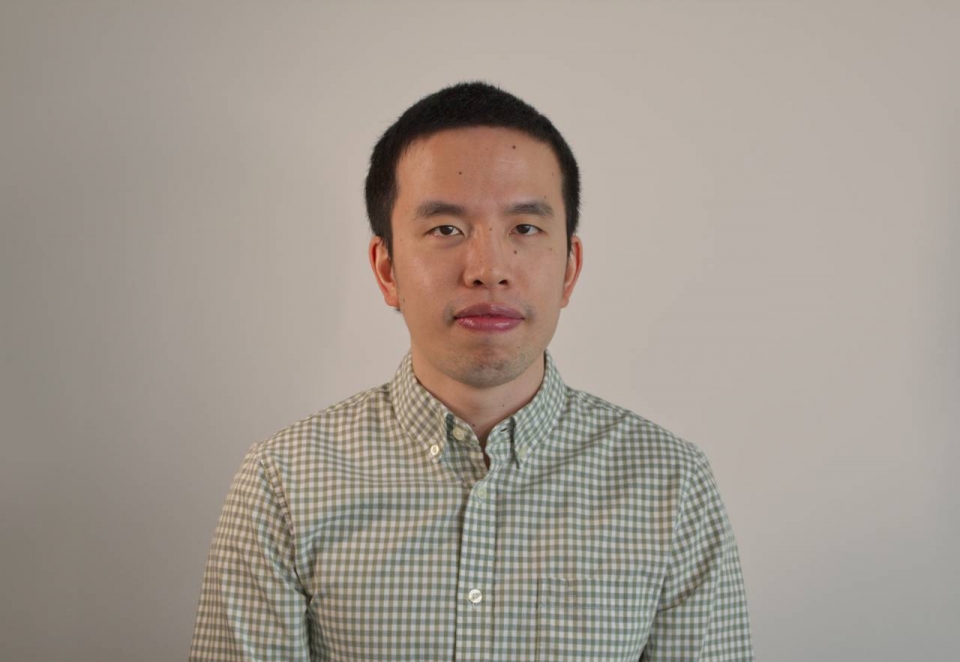Nominated by member scholarly associations of the Federation for the Humanities and Social Sciences, the 2021 Congress Graduate Merit Awards recognize exceptional graduate students who will be presenting their work at the Congress of the Humanities and Social Sciences. Throughout Congress, we are profiling 2021 award recipients. Read on to learn more about the outstanding research of our graduate community, and join the conversation on Twitter using #CGMAProfiles.
Will Schultz
PhD candidate in Criminology, Department of Sociology, University of Alberta
Endorsed by the Canadian Sociological Association (CSA)
My name is Will Schultz. I’m a PhD Candidate in Criminology at the University of Alberta’s Department of Sociology. I do qualitative/semi-ethnographic research in prisons in Western Canada, focusing on a range of topics including life experiences in custody, fatherhood narratives among incarcerated men, radicalization in prison, and prison violence.
Presentation at Congress 2021
When rules fail: Correctional officers, violence, and alternative control mechanisms in prison
"Despite thirty years of Charter protections and Canadian prison reform, stories about illegal use of force against incarcerated people are still frequent."
How would you describe the research you will be presenting at Congress 2021?
Despite thirty years of Charter protections and Canadian prison reform, stories about illegal use of force against incarcerated people are still frequent. I draw on interviews conducted with correctional officers in Western Canada to discuss how and why they use violence inside prisons. Officers describe pressures that make coercive violence a necessary part of their day-to-day work, and discuss strategies that allow them to use force without breaking rules. They describe violence as an inescapable part of the job, irrespective of their personal feelings about it. I conclude by discussing how violence should change the way we view incarceration.
How does the research you will be presenting connect with the Congress 2021 theme, “Northern Relations” and/or the conversations Congress 2021 is continuing under last year's Congress theme (cancelled due to the COVID-19 pandemic), “Bridging Divides: Confronting Colonialism and Anti-Black Racism”?
My work directly interacts with the underlying theories and philosophies that support prisons and incarceration. These institutions are notorious for simultaneously dealing with and perpetuating Canada’s colonial legacy, as well as serious racial injustice. Through my presentation here, I hope that I will be able to communicate just why Canadian prisons are in urgent need for change.
Share your hopes for Congress 2021.
I am excited to hear and see the fascinating research put together by scholars from across the country, and I hope to take in as many sessions as I can. As a proud University of Alberta student, I wish I could be showing everyone our beautiful campus—but, since that is not a realistic option, I hope that everyone will get a taste of the exciting and vibrant campus community that we have here at the U of A.
Tamara Lorincz
PhD candidate in Global Governance, Balsillie School for International Affairs, Wilfrid Laurier University Endorsed by the Canadian Peace Research Association (CPRA)
My doctoral research investigates the impact of the military on climate change and the overlooked issue of military emissions and exemptions in global climate governance. I am a member of the Canadian Peace Research Association and the Peace and Conflict Studies Association of Canada (PACS-Can).
Presentation at Congress 2021
I will be presenting at the Canadian Peace Research Association conference at Congress 2021 on Climate Injustice: Conceptualizing Military Emissions as ‘Luxury Emissions’. I am also looking forward to the Big Thinking presentations by great Indigenous and Black scholars and activists.
"I contend that Western militaries’ emissions, as “luxury emissions”, should be seen as fundamentally unethical and a form of climate injustice."
How would you describe the research you will be presenting at Congress 2021?
My paper extends the ethical conceptualization of “luxury emissions” to military emissions. In their seminal work on climate justice thirty years ago, Agarwal, Narain and Shue made the distinction between the “luxury emissions” of affluent countries and the “subsistence emissions” of poor countries. Yet, they overlooked the excessive carbon emissions from the militaries of developed countries. I argue that emissions from military operations and vehicles like fighter jets used by the United States, United Kingdom and Canada should be conceptualized as “luxury emissions.” While these Western countries use vast quantities of petroleum to power their militaries, developing countries have inadequate energy supplies to meet their basic needs and are most vulnerable to the worst effects of global warming. I consider the moral implications and apply the ethical principles articulated in the 2015 Paris Agreement, such as equity and justice, to military emissions. I contend that Western militaries’ emissions, as “luxury emissions”, should be seen as fundamentally unethical and a form of climate injustice. My argument opens up new ethical and political space to consider disarmament and demilitarization for decarbonization and climate justice.
How does the research you will be presenting connect with the Congress 2021 theme, “Northern Relations” and/or the conversations Congress 2021 is continuing under last year's Congress theme (cancelled due to the COVID-19 pandemic), “Bridging Divides: Confronting Colonialism and Anti-Black Racism”?
In Canada and in other Western countries, all carbon emissions from military vehicles and operations are exempted from national emissions reduction plans. These exemptions give the military an unfair, unconstrained claim to pollute the atmosphere, a global common. Thus Western countries, by virtue of their carbon-intensive advanced militaries, arrogate a greater allocation of the remaining carbon budget, and entrench what Agarwal and Narain describe as “environmental colonialism.”
What is your favourite part of the Congress experience?
At Congress, I value the diversity of sessions, interactions with scholars from across the country and the helpful training sessions for graduate students. I also love Congress’ book fair and will miss wandering through the stacks in person this year.
Ling Chen
DCL candidate, Faculty of Law, McGill University
Endorsed by the Canadian Law and Society Association (CLSA)
What is your primary research area?
I study legal institutions and education to deal with climate change.
Presentation at Congress 2021
Climate Change and Legal Education: A Case Study of Canadian Law Schools
How would you describe the research you will be presenting at Congress 2021?
I try to make a compelling case for the connections between the emergence of climate law as a specialized field for legal research and practice and the development of legal education programs to support those endeavors. Using Canadian law schools as a case study, I showcase how teachers and students have engaged with climate change topics through diverse and experimental legal curricula. The multijurisdictional nature of climate law brings more theoretical, methodological, and pedagogical challenges than conventional legal fields. Teachers and teachings are crucial to addressing these challenges by making sense of, communicating, and even constructing climate law.
"The future development and reform of climate law education must include Indigenous approaches to human-Earth relationships, in order to contribute to building a climate resilient world for all."
How does the research you will be presenting connect with the Congress 2021 theme, “Northern Relations” and/or the conversations Congress 2021 is continuing under last year's Congress theme (cancelled due to the COVID-19 pandemic), “Bridging Divides: Confronting Colonialism and Anti-Black Racism”?
Indigenous peoples and local communities constitute a key part of the solutions to climate change. The mainstream climate law pedagogy, however, tends to underrepresent Indigenous knowledge and worldviews and the intersection between climate law and Indigenous laws. The future development and reform of climate law education must include Indigenous approaches to human-Earth relationships, in order to contribute to building a climate resilient world for all.
Share your hopes for Congress 2021.
I am excited to share my research at Congress 2021 and get feedback. I am looking forward to connecting with and learning from my peer graduate students.
Ayesha Mian Akram
PhD candidate, Department of Sociology, Anthropology, and Criminology, University of Windsor
Endorsed by the Canadian Sociological Association (CSA)
I am a community-based educator, researcher, and organizer whose work is rooted in the intersections of anti-racism studies, religion, gender, and subjectivity. To this end, I pursue community-based research, anti-racist praxis, and critical feminist solidarity-building.
How will you be participating in Congress 2021?
Presenter: “On Developing A Muslim Women’s Resistance Collective”
Co-Organizer: “Women’s Antiracism Organizing: Pandemic Edition”
Co-Chair: “Gender at Work, Gendered Work: Feminist Intersectionalities”
How would you describe the research you will be presenting at Congress 2021?
My presentation at this year’s Congress is a précis of my recently defended doctoral dissertation proposal. My SSHRC-funded doctoral research in Sociology/Social Justice is a participatory project working with Muslim women activists to investigate how they develop collectives of resistance. We will together develop a collective by sharing histories, goals, and strategies; plan, implement and evaluate an impactful social change initiative; and, create a feminist coalition that will hopefully extend beyond the scope of my doctoral project. During the process of working together, we will explore our personal and collective identities, evaluate the importance of collective work for challenging racism, and develop a coalitional model of solidarity and social action.
How does the research you will be presenting connect with the Congress 2021 theme, “Northern Relations” and/or the conversations Congress 2021 is continuing under last year's Congress theme (cancelled due to the COVID-19 pandemic), “Bridging Divides: Confronting Colonialism and Anti-Black Racism”?
As an uninvited settler on the unceded lands of the Indigenous peoples of Turtle Island, my work is significantly informed by anti-colonialist and anti-racist frameworks. My research is rooted at the intersection of oppressive structures—particularly the nexus of settler colonialism, heteropatriarchies, and anti-Muslim racism—to develop an anti-racist framework through which Muslim subjects who are entangled within these intersecting structures can “bridge divides” and challenge these very structures. I do this through the powerful notion of community – by engaging in praxis with my community.
What is your favourite part of the Congress experience?
I love the opportunity to connect and engage with scholars from different disciplines, learn about their approach to research in the social sciences, and just bask in all the intellectual stimulation. I always leave Congress feeling a reinvigorated sense of scholarly pursuit and enthusiasm.
"I’m hopeful that our Congress conversations will lead to critical knowledge-building and increased self-awareness and reflexivity, and inspire the necessary praxis required to name, confront, and challenge colonialisms and racisms in all their forms."
Share your hopes for Congress 2021.
Although I’m disappointed that I couldn’t travel to Edmonton (my hometown) for Congress this year and visit my alma mater (the University of Alberta), I’m still excited to attend and feel that homecoming virtually. I’m hopeful that our Congress conversations will lead to critical knowledge-building and increased self-awareness and reflexivity, and inspire the necessary praxis required to name, confront, and challenge colonialisms and racisms in all their forms.
These profiles have been condensed for length and clarity.



